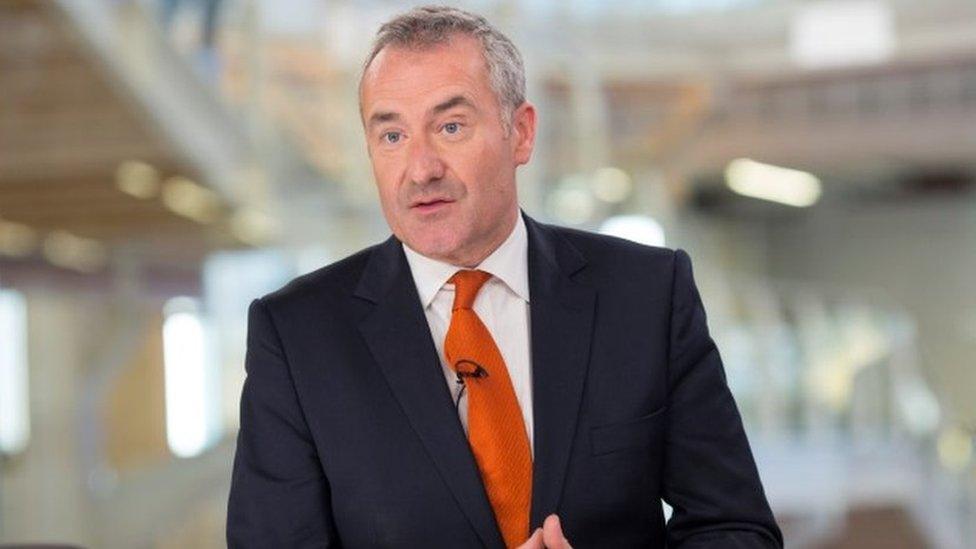Why I wanted photographs of my husband’s funeral
- Published
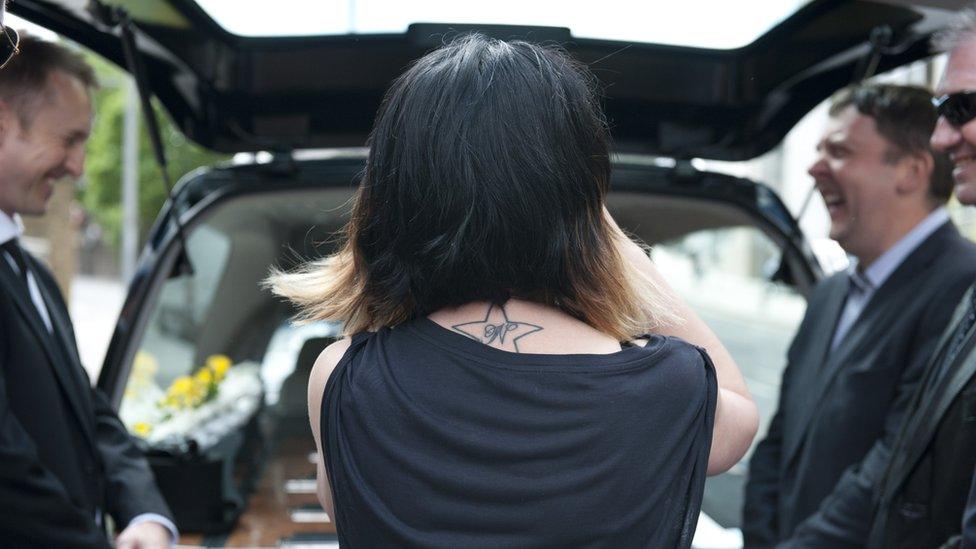
The "calm before the storm" at Nick "Ringo" Southall's funeral
Nibs Southall often looks back at the photographs of her husband Nick's funeral, but there's one to which she always returns.
In the picture, she sees herself facing the hearse, back to the camera. The tattoo on her back, which Nick had too, reads "N". Suited men flank her on either side. The solemn scene is broken by their wide grins.
"The photo caught this moment that was like the calm before the storm," Nibs explains. "We were all nervous and my brother made a joke and we burst out laughing.
"Some people might find that disrespectful, but it was a circle of love."
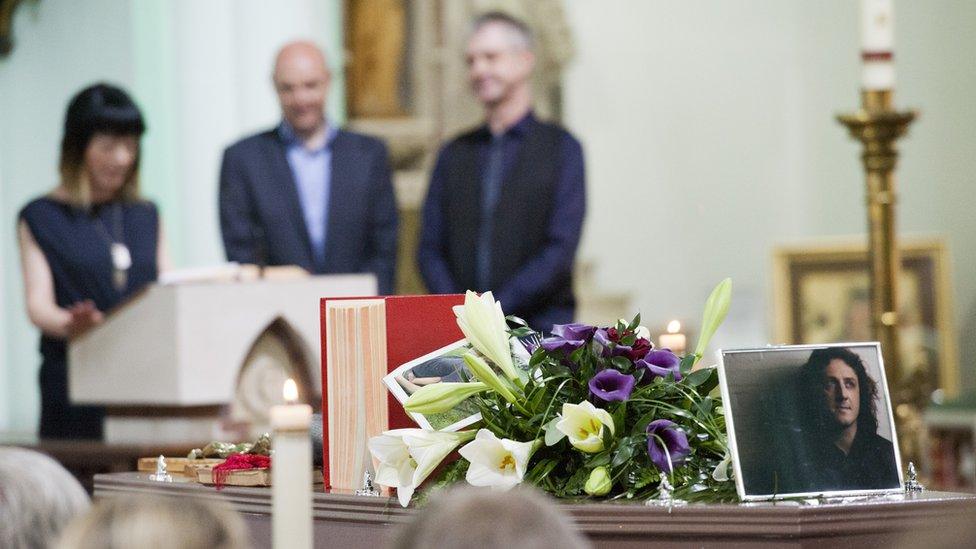
Flowers are the same mix that Nibs and Nick had at their wedding
The photographs were taken by Rachel Wallace, 55, a professional funeral photographer. Documenting such a sad, private occasion might strike people as odd, but listening to Nibs, it becomes more understandable.
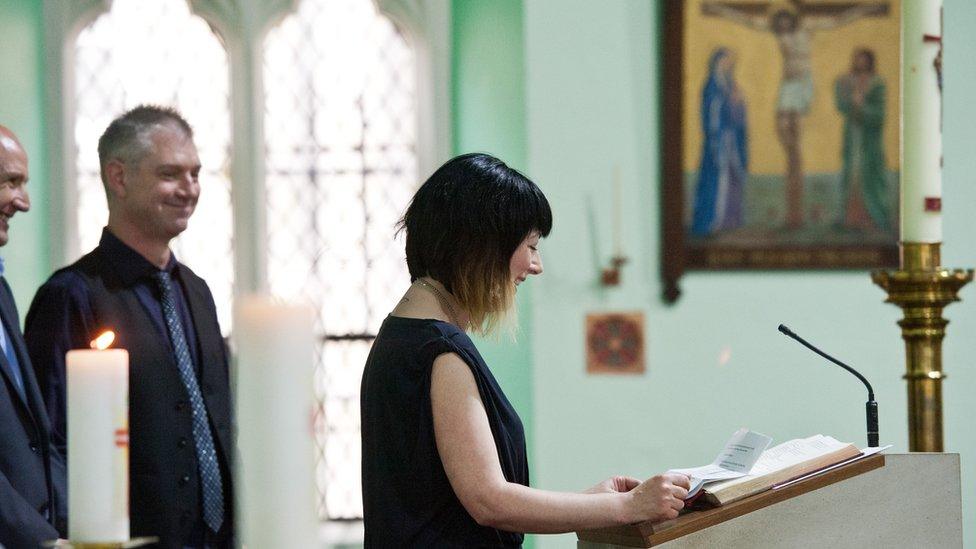
Nibs gives the eulogy at her husband's funeral
Nick "Ringo" Southall died aged only 44, leaving behind his wife and two young children. Rachel had photographed Nibs's father's funeral four years earlier and Nibs knew she wanted her at this one too.
"Grief sort of wiped my hard drive," Nibs remembers. "I knew I wouldn't be able to recall the people who attended the service and I had to have a record of it, not least because my children were tiny.
"I wanted them to remember how many people loved him."
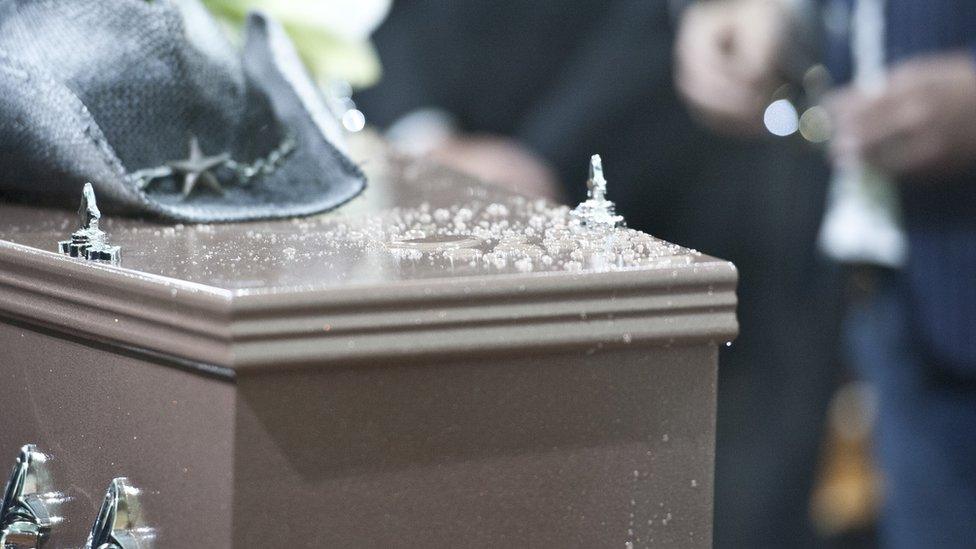
Nick "Ringo" Southall's cowboy hat rests on top of his coffin along with a dusting of glitter
But the photos are more than just a record. "They captured the essence of the day, a feeling," she says. "Being able to look back at them is both comforting and joyous."
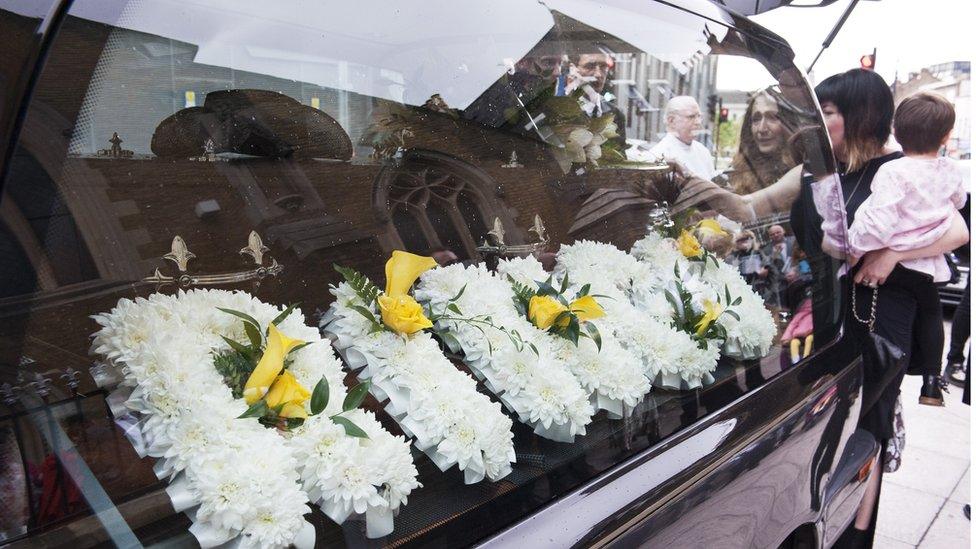
The hearse with Nick's nickname Ringo written in flowers
Nibs's family isn't alone in hiring a funeral photographer - it is part of a new trend in Britain.
Rachel had been a wedding photographer before she made the switch in 2008 and recalls: "I just found I wasn't enjoying weddings any more.
"There is more sincerity in funerals than weddings, which are too often plagued by family dynamics."
It was at the funeral of her friend's partner that Rachel had a realisation.
"She had no idea who was there," said Rachel, "yet it was a beautiful day and people had made a great effort to attend."
Rachel felt it would be better to have photographs to preserve "good memories of a sad day" and she says "it kind of snowballed from there".
When Rachel first started as a funeral photographer 10 years ago she was the only one as far as she was aware.
"I checked the internet so I could get a price guide and there were no other photographers offering the service. Now there are several of us.
"I've definitely seen an increase over 10 years and I now have around 50 inquiries a year."
Clients find her through internet searches and word of mouth. Funeral directors she has worked with also recommend her.
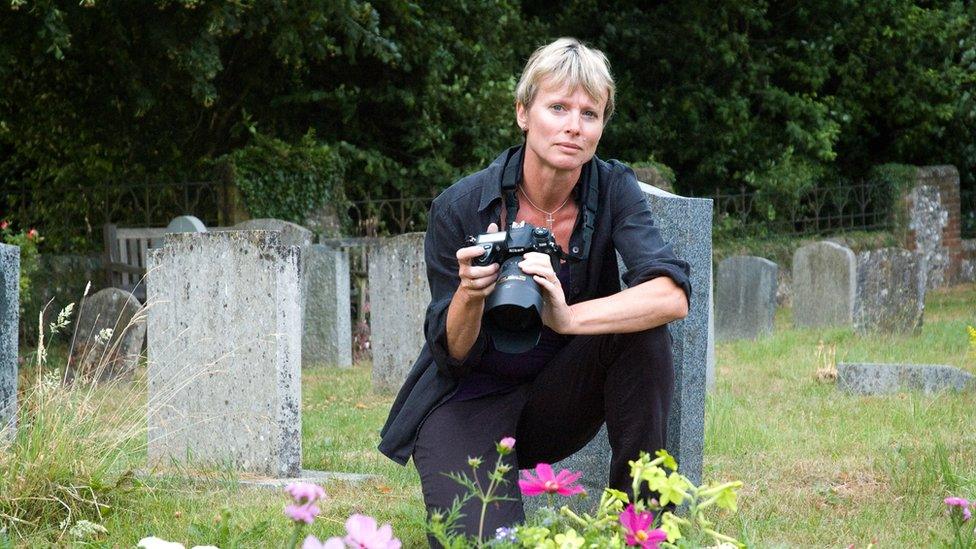
Funeral photographer Rachel Wallace
Shaun Foulds, 42, works at around 50 funerals a year. His first was for a British-Jamaican family about seven years ago.
"I was a little bit nervous, but I got used to it and realised the families do get those moments of compassion and grief captured," he says.
"People are always taken aback by my job but when you explain the reasons, they completely get it."
Discretion, respect and sensitivity are vital qualities, according to Rachel. She uses a telephoto lens with no flash so she can be as unobtrusive as possible.
Her job is not only to document the day, but to capture the "tender moments".
She is not against snapping people smiling or looking happy and says: "I think it's wonderful when you get that moment of happiness and connection."
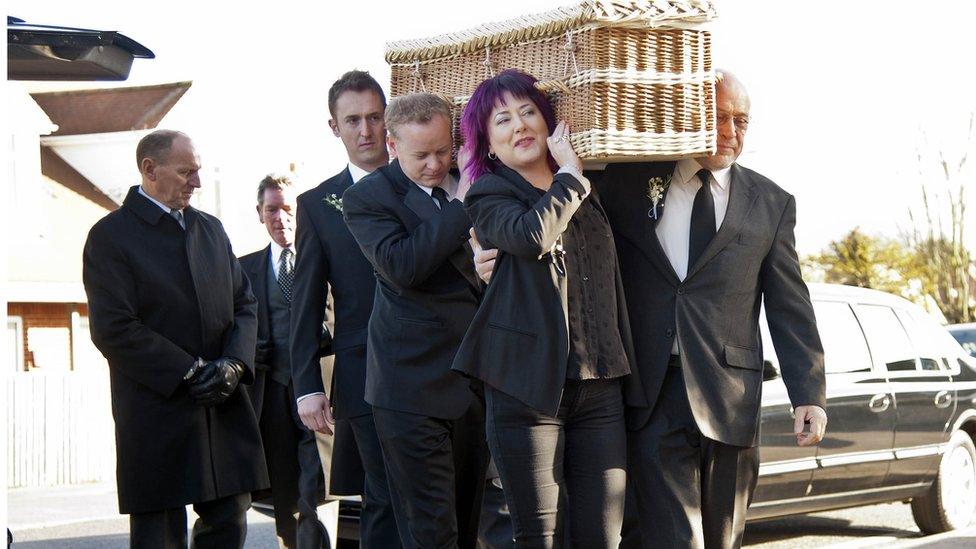
The funeral of Nibs's father Richard
Shaun and Rachel have both seen growing interest in funeral photography .
"We've become a really visual society," says Rachel. "We photograph and share pretty much everything now with our phones." She thinks this has made people less uncomfortable or queasy about the idea.
Shaun believes it is also partly related to the increased diversity of the UK. A lot of his clients come from cultural backgrounds where photographing funerals is commonplace.
Suralita Windle, who hired Shaun to photograph her husband James's funeral earlier this year, is a testament to this.
"I'm from the Philippines and it's very common over there because we're very family oriented and love taking photos all the time," she says.
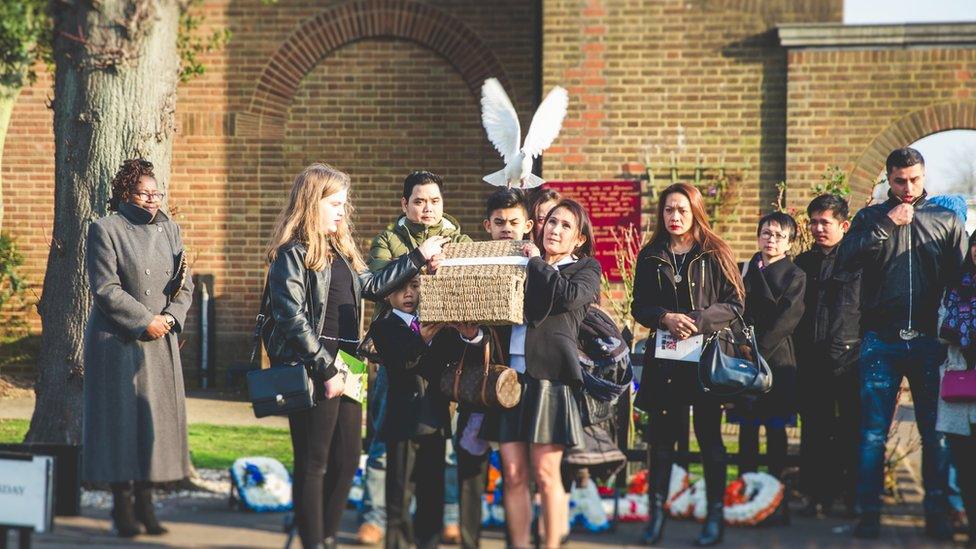
A dove is released at the funeral of James Patrick Windle
But working constantly around grief takes a toll on Rachel. "It doesn't upset me at the time, as I am concentrating on the job, but when I come home and edit the pictures - that's when I feel it."
The emotional impact of a service often depends on the circumstances of the death, says Shaun. When the deceased is either very young or has been murdered they will linger in his mind.
Though being frequently reminded of the fragility of life is not always gloomy, he reflects.
"Going to all these funerals, you see that you go so quick but that you can still make such an impact."
- Published23 November 2018
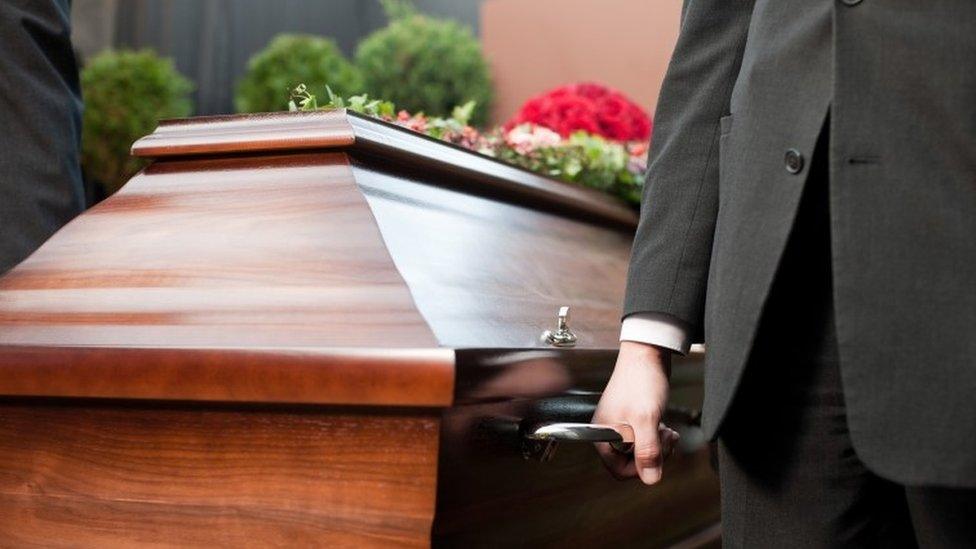
- Published23 July 2018
